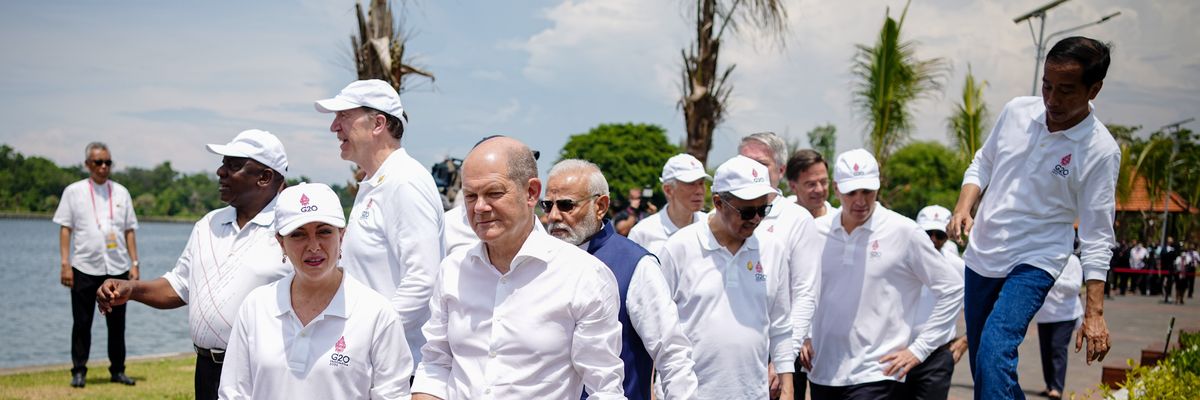The G20 leaders’ joint declaration lowers the temperature a little bit more in an international system that (though remaining fraught with major tensions) was heading toward escalating conflict and contestations through the spring and summer.
Key Global South states, such as G20 host Indonesia, South Africa, and India, played an important role in achieving this outcome. And the Biden administration, to its credit, showed maturity in meeting different and dissenting views part of the way.
The G20 developments continue the streak of promising news in recent weeks. Talks between Washington and Moscow’s top intelligence officials were recently facilitated by Turkey, an important middle power. And, as urged by ASEAN states, Biden and Xi met and talked for three hours in Bali. There is a lesson in this. As laid out in my recent Quincy Institute Brief, if the United States is to remain influential in the coming decades, it will need to prioritize diplomacy and economic engagement over military strategies and take into account the Global South’s new nonalignment.
The joint statement in Bali firmly opposed the threat or use of nuclear weapons, an arena in which Washington and Beijing had already found common ground. It “reiterated…national positions as expressed in other fora, including the UN Security Council and the UN General Assembly, which, in Resolution No. ES-11/1 dated 2 March 2022, as adopted by majority vote (141 votes for, 5 against, 35 abstentions, 12 absent) deplores in the strongest terms the aggression by the Russian Federation against Ukraine and demands its complete and unconditional withdrawal from the territory of Ukraine.”
The language addressed the sharp differences in positions on Ukraine within the G20 through artful workarounds. Apart from the previous reference to “national positions” it also stated that “most members strongly condemned the war in Ukraine…, [but …[t]here were other views and different assessments of the situation and sanctions.”
The G20 was created in 1999, in the wake of the Asian financial crisis, as an informal grouping primarily focused on global economic governance. Indonesia successfully resisted pressure by the United States and its European allies to not invite Russia to the summit, arguing that the G20 was not a security forum. The joint statement reiterated this core purpose of the grouping, and most of the statement’s text focused on issues such as food security and meeting sustainable development goals. But it also acknowledged that “security issues can have significant consequences for the global economy.”
In sum, the G20 agreed where it could, but also agreed to disagree where it couldn’t. This itself is a victory of sorts. Washington’s tone on Ukraine has long been overly moralistic, delegitimizing voices calling for a middle ground and a diplomatic pathway. But at Bali, all sides gave ground and showed a newfound maturity.
Washington’s more conciliatory attitude is consistent with recent revelations about secret U.S.-Russia talks on limiting nuclear escalation and Washington’s encouragement for Ukraine to show more flexibility on negotiations. A recent letter by progressive U.S. lawmakers, roundly criticized and ultimately withdrawn, in fact aided Biden’s efforts in that direction.
The reality is that the world, and particularly the Global South, is not in favor of an escalating rivalry between the three great powers, the United States, Russia, and China. “We should not divide the world into parts,” Indonesian President Joko Widodo told the gathered leaders. “We must not let the world fall into another cold war.”
When it comes to international security, a few positions are resonant across practically all states — opposition to the threat or use of nuclear weapons and defense of national sovereignty and territorial integrity. But there is also a deep aversion to a new cold war and little appetite for a grand struggle pitting democracies against autocracies. The message to Washington (and Beijing and Moscow) from the Global South is clear — seek diplomatic pathways, do all you can to avoid escalatory spirals, focus on global challenges and economic stability, and take our views into account much more than you have thus far.

















